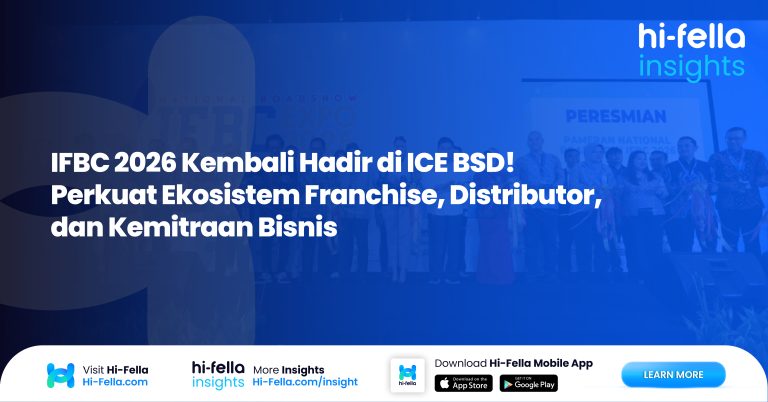Memahami Etika Bisnis dan Investigasi 10 Kasus Pelanggaran yang Terkenal
Mata kuliah Etika Bisnis adalah salah satu mata kuliah yang dipelajari di dunia perkuliahan ekonomi dan bisnis. Etika bisnis adalah pedoman norma tidak tertulis yang mengarahkan perilaku dan keputusan dalam berbisnis. Bisnis yang dilakukan secara etis merupakan kewajiban bagi para pelaku bisnis, baik itu perusahaan maupun individu. Ironisnya, persaingan bisnis global dan pesatnya perkembangan ekonomi malah membuat etika bisnis dilanggar.
Kasus pelanggaran etika bisnis menjadi merajalela. Namun, kembali lagi ke pertanyaan awal, bagaimana etika bisnis itu? Apa teori dan prinsipnya?
Teori Etika Bisnis
Ada 4 teori etika bisnis yaitu teori keutamaan, teori hak, teori deontologi, dan teori teleologi.
- Teori keutamaan
Teori ini membahas tentang moral seseorang, bagaimana seseorang bersikap. Apakah mereka jujur, baik, ramah, atau tidak. Perilaku seseorang yang baik juga akan menciptakan karakter yang baik secara moral juga. Begitu juga sebaliknya. - Teori hak
Teori hak berbicara tentang apa yang pantas dan harus didapatkan seseorang. Dari segi bisnis, segala keputusan yang diambil pelaku bisnis tidak boleh melanggar hak seseorang. Hak seseorang tidak boleh dikorbankan demi mencapai satu tujuan. - Teori deontologi
Teori ini menekankan untuk bersikap sesuai kewajiban dan tanggung jawab yang diberikan. Dari segi bisnis, misal seseorang diberi tanggung jawab untuk memasarkan produk, maka ia harus memasarkan produk dengan baik. - Teori teleologi
Bisa juga disebut utilitarianisme, teori ini berfokus pada manfaat. Teori ini menjelaskan jika sesuatu bisa dikatakan etis jika membawa manfaat untuk khalayak. Tujuan di akhir yang bermanfaat itulah yang membuat sesuatu dikatakan baik atau etis.
Prinsip Etika Bisnis
Ada 5 prinsip etika bisnis yang perlu diketahui di antaranya otonomi, equilibrium, free will, responsibility, dan honesty.
- Otonomi
Prinsip otonomi menekankan pada pengambilan keputusan yang tepat sesuai dengan etika bisnis dan peraturan yang berlaku. Artinya, pelaku bisnis harus mengambil keputusan yang tepat dan tidak boleh melenceng dari etika bisnis. - Equilibrium
Prinsip equilibrium menekankan keseimbangan. Artinya, pelaku bisnis tidak boleh berpihak ketika memutuskan sesuatu. - Free will
Prinsip free will berbicara tentang kesempatan yang rata yang bisa didapatkan seseorang. Semua pelaku bisnis mempunyai porsi yang sama sesuai dengan apa yang mereka bisa, tidak boleh dibatasi untuk kepentingan satu orang atau golongan saja. - Responsibility
Prinsip ini berbicara tentang tanggung jawab. Seluruh keputusan yang diambil oleh pelaku bisnis harus bisa dipertanggungjawabkan nantinya. - Honesty
Prinsip honesty menekankan tentang kejujuran. Dalam bisnis, kejujuran dan transparansi sangat penting. Tidak hanya kepada sesama pebisnis, melainkan juga pada pelanggan dan internal perusahaan.
10 Kasus Pelanggaran Etika Bisnis
Berikut ini adalah 10 kasus pelanggaran etika bisnis yang menarik beserta analisisnya berdasarkan teori dan prinsip etika bisnis terkini.
- VW
VW, atau bisa juga disebut Volkswagen, tersandung kasus pelanggaran etika bisnis yaitu berbohong kepada regulator dan konsumen mereka soal aspek kunci dari kinerja mobilnya. Mereka mencoba mengkambinghitamkan para teknisinya dan meyakinkan bahwa VW tidak terlibat dalam kasus ini. Melihat dari kasus yang menimpa VW ini, VW telah melanggar teori hak dan prinsip honesty dari etika bisnis. Mereka tidak menerapkan kejujuran ketika mereka berbohong pada konsumen mereka yang berhak mendapatkan hak mereka. - FIFA
Para pemimpin organisasi FIFA, badan yang mengatur sepak bola di seluruh dunia, sempat tersandung kasus korupsi. Hal ini jelas melanggar teori keutamaan, prinsip otonomi dan responsibility etika bisnis karena koruptor FIFA ini mengambil keputusan yang tidak sesuai dengan etika bisnis dan peraturan yang ada. - Panama Papers
Kasus ini adalah kasus retas yang mengakibatkan 11,5 juta dokumen yang terdiri dari 1,5 terabyte data bocor ke konsorsium wartawan internasional. Hal ini jelas melanggar etika bisnis karena minimnya keamanan. - Uber
Uber pernah tersandung kasus dugaan pelecehan seksual. Mantan karyawan Uber, Susan Fowler, menyatakan pada publik bahwa perusahaan tempatnya bekerja memiliki budaya pelecehan seksual yang cukup kental. Hal ini jelas melanggar teori keutamaan dan prinsip hak etika bisnis karena Susan Fowler, dan kemungkinan karyawan lainnya, dirampas hak amannya oleh orang-orang tidak bertanggung jawab di perusahaan tersebut. - PB Djarum dan KPAI
Kasus ini berawal dari laporan Yayasan Lentera Anak kepada KPAI tentang adanya dugaan eksploitasi anak oleh PB Djarum. Mereka melihat adanya anak-anak yang mengikuti suatu kegiatan di mana pada kaus yang mereka pakai terdapat logo PB Djarum yang cukup mencolok. Karena PB Djarum adalah perusahaan rokok, tidak pantas bagi mereka melibatkan anak-anak dalam kegiatan mereka. Hal ini melanggar etika bisnis karena keputusan yang diambil dari pihak PB Djarum dianggap melenceng. - Facebook
Facebook pernah tersandung kasus yang melibatkan data penggunanya. Data yang dimiliki jutaan pengguna Facebook diretas dan membuat privasi para pengguna menjadi tidak aman. Hal ini jelas melanggar etika bisnis karena Facebook dianggap lalai dalam menjaga privasi penggunanya. Facebook juga mengabaikan hak penggunanya yaitu mendapatkan privasi. - PT Ajinomoto
PT Ajinomoto pernah tersandung kasus akibat laporan BPOM dan LPPOMMUI atas temuan mereka terhadap bahan bactosoyone di produk PT Ajinomoto yang berpotensi membahayakan konsumen. Hal ini jelas melanggar teori hak etika bisnis karena konsumen PT Ajinomoto tidak mendapatkan hak aman konsumsi dari produknya. - PT Tirta Freshindo Jaya
Semua bermula ketika PT Tirta Freshindo Jaya ingin membangun gudang di daerah Pandeglang dan Serang. Mereka sudah mendapatkan izin dari pemerintah setempat, tetapi alih-alih menjadikan gudang, mereka justru menjadikan bangunan tersebut pabrik minuman kemasan. Hal ini jelas melanggar hak warga sekitar karena warga sekitar merasa dirugikan. Lingkungan dan air yang mereka gunakan sehari-hari menjadi tercemar. Prinsip otonomi juga dilanggar karena mereka mengambil keputusan yang tidak tepat. - PT Megasari Makmur
Kasus ini berawal dari laporan yang diterbitkan Lembaga Bantuan Hukum Kesehatan yang menemukan bahwa seorang pembantu rumah tangga mengalami keracunan setelah menyemprotkan obat nyamuk buatan PT Megasari Makmur. Diketahui bahwa obat nyamuk tersebut mengandung zat aktif dikorvos dan propaxur yang berbahaya bagi manusia. Kasus ini menunjukkan bahwa PT Megasari Makmur telah melanggar etika bisnis berupa hak konsumen untuk mendapatkan produk yang layak dan aman. - PT Garuda Indonesia
PT Garuda Indonesia pernah tersandung kasus fraud yang melibatkan laporan keuangan mereka. Terdapat keanehan dalam laporan keuangan tahun 2018 mereka yang mengakibatkan saham dan kepercayaan konsumen mereka menurun. Hal ini jelas melanggar etika bisnis karena keputusan mereka merugikan banyak pihak.
Etika bisnis seolah terdengar mengekang, seolah bisnis mempunyai banyak aturan yang membuat pebisnis pemula tidak bebas berekspresi. Namun, aturan-aturan tidak tertulis itu justru yang melindungi baik pebisnis dan konsumen mereka.
Sebagai mahasiswa yang mungkin akan menjadi pebisnis pemula, kamu tidak perlu takut untuk memulai bisnis. Dengan Hi-Fella, kamu bisa memulai bisnismu semudah membalikkan telapak tangan. Hanya dengan mengunduh aplikasi Hi-Fella dan membuat akun, kamu bisa mendapatkan supplier sesuai dengan kebutuhan bisnismu. Yuk, daftar sekarang!








